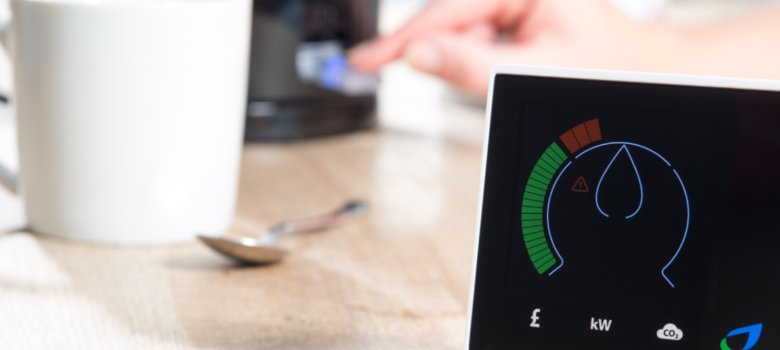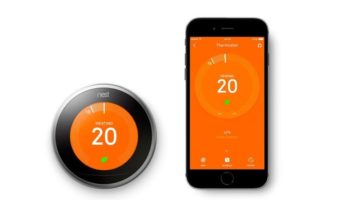
What are smart meters?
The smart meter is a relatively new technology that records real time electricity and gas usage and delivers this information back to the utility companies wirelessly, without the need for manual readings.
Smart meters keep the consumer informed and updated on their actual energy use. By having a smart meter it can give you a lot more control over when you choose to increase or decrease your energy usage. The idea is that smart meters will result in lower levels of energy consumption, which means this will reduce the carbon emissions from each household.
It is fair to say that smart meters have attracted some level of controversy, but some of the concerns we hear about seem to be influenced more by conspiracy theories than by facts. They are governed by strict security regulations and there is no evidence to suggest that they are hazardous to health.
Why have smart meters been introduced?
Smart meters could be good news for householders, because they put a stop to estimated bills and they mean that consumers can sign up for ‘time of use’ tariffs, allowing them to benefit from cheap rates.
UK energy network infrastructure could be put under less strain as a result of time of use tariffs. They pave the way for the National Grid to better manage power supply by reducing peaks in demand. This could have a role to play in avoiding an approaching energy deficit in the UK.
In the UK, the population is increasing and energy demand is high. This is coupled with the decommissioning of many of our existing nuclear and coal power plants, which will decrease the amount of electricity we are producing. Also, renewables such as solar PV and wind produce power intermittently, so we need a grid that is more flexible to meet these supply and demand issues.
Smart meters should allow utility companies to better match demand with supply, by encouraging people to use energy at different points in the day other than traditionally ‘peak’ times; thereby making a more efficient electrical grid.
How do smart meters work?
Smart meters send gas and electricity readings directly to your energy supplier via a purpose-built secure national network (DNN), using radio waves. As well as new gas and electricity monitors, you also get an in-home display. This shows you your energy consumption in the last day, week or month. It also tells you how much you have spent. Smart gas meters are battery-powered and send readings every half hour. Smart electricity meters run off mains electricity and give moment-to-moment readings. The in-home display is also wired into the mains. It costs less than £1 a year to run.
How can I get a smart meter?
They are provided and installed by energy providers, in place of the ones you have now. If you do not already have a smart meter, you will be contacted in the next few years to arrange (free) installation. If you have different suppliers for gas and electricity, the person installing the second meter will link it to the first, and to your in-home display.
Do I have to have a smart meter installed?
The Government has ordered a national rollout of smart meters by 2020. Energy providers are expected to take ‘all reasonable steps’ to install smart meters in every home. However, they cannot force you to have one.

There is some speculation that energy companies might not be happy about some people doing things differently, as installing smart meters could cut their admin costs in the long run. They could raise energy prices for those with ‘dumb’ meters as an incentive to cooperate.
If you have any questions about the installation process, or your options, you should contact your energy supplier.
What do smart meters mean for the future?
As we mentioned above, smart meters could mean big savings for bill payers and help the UK to balance energy supply and demand.
If you have a smart meter, you can benefit from cheap rates on time of use tariffs. The lowest of these at the moment is 4p per hour, so if you can get used to using your energy at off-peak times, you could potentially save a lot of money.
As the energy mix becomes more complex in terms of supply and demand continues to grow, smart meters will become a powerful tool to allow utility companies to continue to supply customers with uninterrupted electricity supply as and when it is needed.
What are the advantages of smart meters?
- First of all, you will no longer have to read meters or send readings yourself.
- No more estimated bills – you only pay for what you use.
- They come with energy monitors that allow you to better check your energy usage, and make necessary changes. It will also allow better energy budgeting and tracking and personalized energy efficiency tips from the energy company.
- They mean people can sign up for time of use tariffs, helping them profit from cheaper electricity when demand is lower.
- There are also benefits for individuals who install the smart meter technology as the meters provide a much more comprehensive picture of energy use within the home. This will highlight things like which appliances use high amounts of electricity (which potentially can be replaced with more energy efficient models). It can also highlight when your home is using peak power, allowing you to adjust your behaviour and try to use less power.
- Using smart meters with time of use tariffs will help even demand during the day by charging more at peak times and less at off-peak times. This means that the installed peak capacity can be reduced. As our energy mix becomes more complicated, as a result of more energy sources feeding into it – energy companies can use the smart grid to better manage supply and demand.
- They make it easier for prepayment customers to top up, without the need for a key or a card. Seeing how much of their budget they have left will also be more straightforward.
What are the disadvantages of smart meters?
- Although they are billed as being ‘free’, the installation fee will be indirectly passed on to residents through their energy bills. However, the £11 billion cost of installing them nationwide will only cost individual households an estimated £6 per year. And – when used in conjunction with time of use tariffs – they could save people quite a lot more than that.
- Some people are worried that smart meters can affect health. However, the level of radio wave exposure from smart meters is well within guideline levels, and also lower than that from wifi and mobile phones. Public Health England says smart meters are safe. You can view detailed information from the Government here.
- There are concerns about energy companies sharing personal data. In reality, this is no more likely than it is with a standard meter – energy companies are only allowed to share information if you agree to it in your contract. The most ‘personal’ information they could share would be to tell companies such as price comparison websites how much you spend on your energy. But they cannot even do this without your consent.
- There are also fears of hacking, but smart metering systems have been designed by GCHQ and other leading security experts. Contrary to rumours, it won’t be possible for your energy supplier to fiddle your readings in order to charge you more.
- In theory, switching energy provider should be just as easy with a smart meter. However, some consumers have reported that switching providers forced their smart meters into ‘dumb’ mode. This issue is being worked on at the moment.
For more details, or if you need to ask any questions, contact Smart Energy UK.












Yet another way BIG COMPANIES/GOVERNMENT is sticking their noses into our lives!!!!!
Since they installed a smart meter at my home we all suddenly got very ill including my pets. One of my dogs developed large tumors and had to be put down. And my bill is triple the amount every month. Not such a great deal for me now is it. And I live in California in USA AND HAVE SOUTHERN CALIFORNIA EFIDIN FOR MY ENDRY COMPANY. Joke!
Hi Great idea smart meter!!! The government has made it easier to change suppliers well done,but if you have a smart meter fitted and get the benefits ,then change supplier, the smart meter will not work,it only works for the company that fitted it,not so smart.
Ironic isn’t it really. Well if true about the smart meter comparability, then consumers are going to have massive issues in switching onto the best energy tariff.
Energy companies will also be able to better manage supply and demand of the grid, which will actually lead to a reduction in peak demand. This means that less older, more inefficient power plants will need to fire up therefore the carbon footprint of the energy mix will reduce.
Should this not read ‘newer, more efficient, power plants will fire up’ ??
Rob, sadly if you look at the energy mix at the minute, there new plants are running at full capacity and the ‘mothballed coal power plants’ are being used to supplement the demand. It is absolutely ridiculous.
Anyway the good news this week is that as a result of smart meters, Green Energy UK have now just released the first time of use tariff in the UK. This charges people different amounts depending when in the day they use the electricity (a little like Economy 7, but more time slots with different rates). The peak electricity (6pm to 9pm) is 25 pence per kWh, while the night time rate is just 4.99 pence. Therefore it seems that smart meters are going to bring battery technology into the mainstream!
Thereby lies the crux; suppliers will force people to turn off their tv, heating, cooker, etc. between 6pm & 9pm by simply ramping ‘peak’ prices to astronomical levels. There will be little competition and the market players will adopt the same old cartel structure we already suffer. We’re paying £11b for the privilege of hiking our own energy unit costs as the transfer of energy use to a cheaper period is a myth. ‘Encouraging’ us to use off-peak supply, particularly during Winter, is nonsense because most of us need hot showers, hot food, etc. in the evening after work. We’d better get used to salad and shared warmth in the pub.
Conlicting cimments on a smart meter already installed and adding solar panels. What about my meter
My son is sensitive to radio wave emissions from our router, so I switched off the wireless part. He still claims to detect weak emissions from it and, since the smart meters (gas as well as elec.) were installed, he is unsettled by them.
Smart meters are a very stupid idea. They’re already causing illness in many people in the USA, and when they get connected to 5G, the radiation will increase to incredible levels – which haven’t yet been tested on humans. They’re also yet another way the government will have more control over us. Just SAY NO to this insidious technology!
I use as much or as little gas and electric as I need. I wouldn’t look at a home display, for reasons above. How would a s. Meter save me money, as l suspect it wouldn’t. Cheers.
After being conned into installing smart by British gas, they refuse to replace it with old conventional one, stating they don’t have one. Smart meter making me ill, ringing in my ear and headaches.
The fact that smart meter emissions are lower than from mobile phones is disputed in other articles which claim it can be much, much higher. Did you check that data with other sources than the government’s? Remember, years ago people were told that smoking was good for you and asbestos snow was sold for Christmas decoration. If you double check and that disputed will you update this article. A responsible journalist checks data from many different sources. Thanks
The fact that smart meter emissions are lower than from mobile phones is disputed in other articles which claim it can be much, much higher. Did you check that data with other sources than the government’s? Remember, years ago people were told that smoking was good for you and asbestos snow was sold for Christmas decoration. If you double check and that disputed will you update this article. A responsible journalist checks data from many different sources. Thanks
I moved into a property that already has smart Meyers. I asked OVO to set them to dumd mode, but the company is unable or unwilling to do this..They said I can have traditional metres installed at a cost of £300to myself. What are my rights?